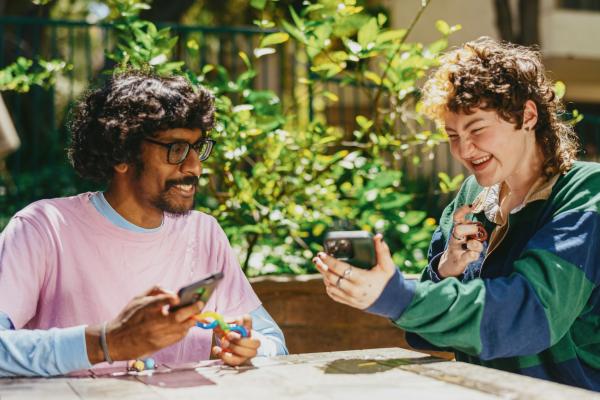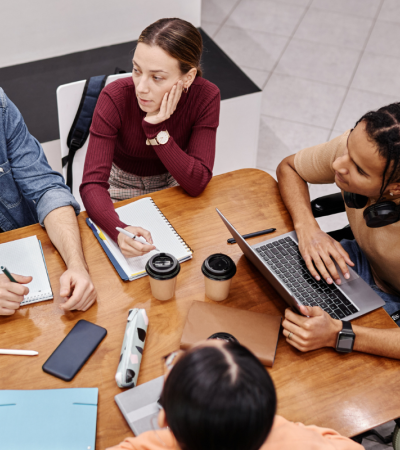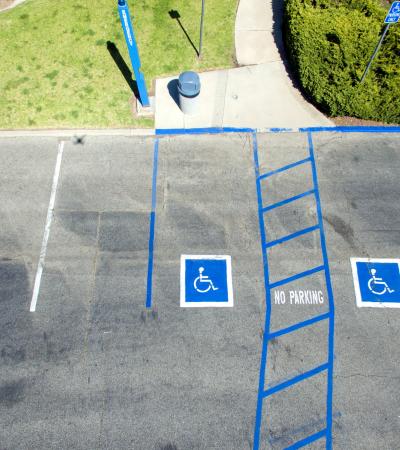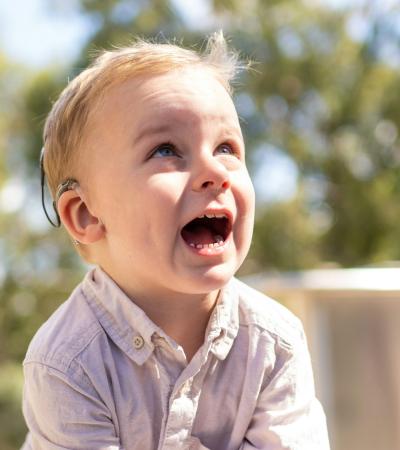In 2022, as part of Libraries Transforming Communities (LTC), the American Library Association (ALA) launched a grant opportunity for hundreds of small and rural libraries looking to better serve the needs of patrons with disabilities. The evaluator of LTC, Knology, has been analyzing reports by LTC libraries in order to share what they are learning with the field and provide guidance for other libraries pursuing accessibility projects. Many libraries are considering the specific needs of neurodivergent patrons, and here, we share what we’re learning from their efforts.

What we found is that, by hosting conversations with neurodivergent members of their communities, LTC libraries have been learning how to take into account their specific needs and priorities. Below, we draw on LTC libraries’ interim report data to present three priorities that neurodivergent patrons expressed wanting to see addressed at their library.
What we found
Of the 213 small and rural libraries that sent us interim reports, 69 chose to develop accessibility projects that included the needs of neurodivergent patrons, and 44 of these focused exclusively on these patrons. Here, we focus on the 44 libraries with neurodiversity-specific projects. Drawing on libraries’ interim reports, we touch on three lessons that small and rural libraries have learned about neurodivergent accessibility.
Neurodivergent needs often overlap with those of people with physical disabilities
Through conversations with neurodivergent patrons, many LTC libraries learned that the accessibility needs of this group often overlap with those of people living with physical disabilities. Because of this overlap, library staff have found that to make their libraries accessible, they would need to consider how the concerns of neurodivergent patrons could be addressed by making physical changes to the library environment.
For example, when staff at Athens Public Library in Athens, MI sought to become more accessible to neurodivergent patrons, they initially wanted to expand their existing collections to include materials designed for this audience. But through conversation, they learned that neurodivergent patrons were more interested in making the library more physically accessible — for example, by installing automatic door openers, removing a carpet that was a safety concern for some with mobility impairments, and fixing the building's musty smell (which patrons with sensory differences found off-putting).
Similarly, at Boylston Public Library in Boylston, MA, staff learned that the building's harsh lighting prevented individuals with sensory concerns from entering and enjoying the space. And at Britt Public Library in Britt, IA, caregivers of neurodivergent children told staff how important it was to have a “quiet outdoor space” — one with limited aural and visual stimuli. To address these concerns, the library is using LTC funds to create an outdoor garden, while also considering ways to install concrete padding throughout the building.
As all of these examples show, making libraries more accessible to neurodivergent individuals often means improving the physical accessibility of library spaces.
Neurodivergent inclusion requires community-building and social connection
LTC libraries also learned about the importance of creating spaces that help neurodivergent patrons find companionship and community.
At the Lineville City Library in Lineville, AL, staff decided to build a sensory garden that would give neurodivergent patrons a quiet, non-distracting space to meet. Conversations with patrons confirmed the need for such a space, as neurodivergent members of the community indicated that they often feel isolated and left out. A similar realization emerged from conversations held at Beals Memorial Library in Winchedon, MA, where caretakers noted how difficult it is for youth with autism, ADHD, sensory processing issues, or other forms of neurodivergence to interact with others in the community. To accommodate these needs, the library intends to develop more sensory-friendly programming.
When Ashby Free Public Library staff hosted a conversation with neurodivergent patrons, they also learned that human connection and community-building are important needs not being met for this group. To offer neurodivergent individuals opportunities to meet others with similar accessibility needs, the library plans to develop a range of social and cultural programs for this audience. Movie nights, gaming events, and clubs emerged from their conversations as the top programming priorities for neurodivergent individuals, as well as adaptive art courses. The library hopes that these new programs will encourage an underserved group to visit the library and support the formation of a more inclusive community in Ashby, MA.
Accessibility must be for neurodivergent people of all ages
Through conversations, LTC libraries learned that when addressing the needs of neurodivergent people, community institutions tend to focus on children. To promote age inclusivity, some of these libraries created programs specifically designed to accommodate older youth and adults.
At the Little Falls Public Library in Little Falls, NY, staff heard from neurodivergent teens who felt "frustrated and even ashamed" at the learning loss they experienced during COVID-19. In response, the library began accumulating resources to help these students improve their reading and writing proficiency. A Teen Advisory Board was created to guide the selection of materials, and the library also made plans for creating a new space in the building's upper floor — where teens will be able to "work privately in a way that maintains their dignity."
The Cutler Memorial Library in Plainfield, VT used its funds to support neurodiverse patrons of various ages. For younger visitors, the library plans to add a selection of phonetics-based decoding materials to its early readers section. For teens and adults, the library will introduce new seating options (including a bean bag chair and gliders) suitable to those with sensory concerns. And to better support the caregivers of neurodivergent people, the library is planning to host support groups and create sensory-friendly hours (which they hope will encourage entire families to visit).
In Walnut, IL, the Walnut Public Library is also working to make its programs accessible to neurodivergent patrons of different ages. To begin doing this, the library hosted a DEAI workshop, which featured speakers from a variety of organizations working on issues related to accessibility and inclusion. Many of the topics these organizations presented were catered toward adults living with different kinds of disabilities, and included useful information such as how to apply for social security disability benefits, what happens with SSI when a disabled child turns 18, and what neurodiversity means for work settings and employee benefits. In addition to offering information and resources for neurodiverse adults, the workshop also included presentations geared toward caretakers of neurodiverse individuals. One attendee, who is the caretaker of a neurodivergent adult, expressed to library staff that the workshop “refilled [their] cup with hope.” They said they were grateful to the library for hosting an event that supported the needs of both neurodivergent people and those who care for them.
Walnut Public Library also plans to increase accessibility for neurodivergent children and teens by installing “sensory boxes” at the library. The boxes, which will contain sensory-friendly materials, toys, and resources for neurodivergent youth, will also be shared with the library’s school district for classroom use throughout the year.
Meeting the needs of the neurodivergent community
These are but a few of the lessons that libraries have learned while developing accessibility projects for neurodivergent patrons and community members. In many cases, LTC libraries have received input directly from neurodivergent people that prompted them to rethink their priorities to more closely align with the wishes and needs of this population.
We are eager to see what the next step for the LTC libraries mentioned here will look like, and what challenges and opportunities will arise as they continue developing accessibility projects with, by, and for their neurodivergent patrons.
Resources
For more on how to meet the needs of neurodivergent patrons, we recommend the following:
- Autistic Self Advocacy Network (ASAN)
- Project Enable
- Library Programming for Adults with Developmental Disabilities (ALA Editions publication)
- Library Programming for Autistic Children and Teens (ALA Editions publication)
About this Article
This article is part of a series of blog posts exploring how libraries that received funds through ALA’s LTC: Accessible Small & Rural Communities are working to better meet the needs of patrons with disabilities. In other posts in this series, we look at attempts to put the disability rights movement’s ethic of “Nothing About Us Without Us” into practice and consider efforts focused on neurodivergent patrons and older adults. For more on how libraries can become more accessible to patrons with disabilities, see the collection of resources we assembled. And for more information about LTC, see our historical overview of this initiative.
Knology is a nonprofit research organization that produces practical social science for a better world. The organization pursues this goal to help professionals in a variety of sectors build inclusive, informed, and cooperative societies that can thrive together with the natural systems on which we all depend. As a transdisciplinary collective of over 30 social scientists, writers and educators, the organization's work process is built on equity, transparency and deliberation.



